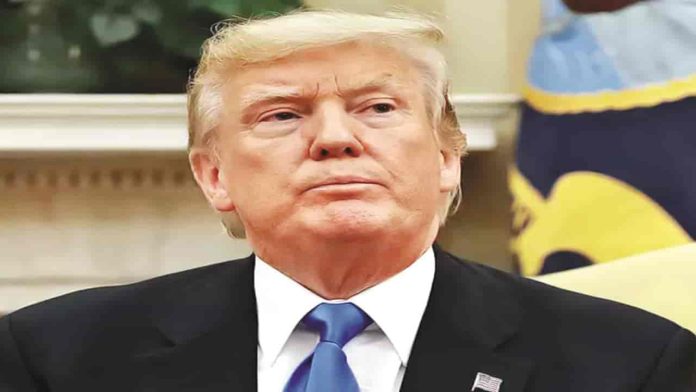Donald Trump is the first Republican presidential candidate who was not a White House incumbent to carry the nation’s first two contests. His winning margin of 11% in moderate New Hampshire demonstrated his iron-clad control of the party’s hard-right base
By Kenneth Tiven
Donald Trump has spent four grievance-driven years warning America that he will be seeking retribution in 2024. Winning New Hampshire’s Republican primary moved him a step closer to regaining his White House job if can win a November election rematch with President Joe Biden. Finally, in just a two-person contest, Trump gained nearly 55% of the votes. Nikki Haley, an Indian-American daughter born in South Carolina to Sikh immigrants, finished with 44%.
America’s primary nominating elections are state matter and as such, a hodgepodge of various regulations. In New Hampshire in the New England region, registered Republicans and registered unaffiliated voters could vote. Registered Democrats had their own primary contest easily won by President Joe Biden. The results have to be viewed as less favourable to Trump in a general election.
Trump gained nearly 55% of the votes, with Haley attracting 44% in the first two-person match-up. This is a process to determine the ratio of state delegates for each presidential competitor at the national nominating conventions in the summer. Trump expects to be nominated by acclimation, thus his desire to wipe out opposition early. Essential because he faces the possibility of spending a great deal of the next ten months in courtrooms fighting criminal indictments for his involvement in a coup effort in January 2021 to deny Joe Biden his election win. In exit polling, a majority of voters who described themselves as Trump supporters indicated that even if he was convicted on any of the charges against him, they still wanted him as president.
The history of surprise outcomes from New Hampshire’s independent voters wasn’t enough to break the spell Trump has over the Republican Party. Trump is the first Republican presidential candidate who was not a White House incumbent to carry the nation’s first two contests. His winning margin of 11% in moderate New Hampshire demonstrated his ironclad control of the party’s hard-right base. The US presidential season started with eight politicians engaged in debates, except for Trump who refused, continuing to deny he lost in 2020 to Biden. Trump always tries to dominate any situation. His core supporters treat him with devotion, right or wrong. This is customary among cult leaders in politics and religion.
Haley said she won’t drop out, saying: “This race is far from over.” The next primary is in late February in South Carolina where she previously was twice elected governor. Trump acknowledged his win gracelessly, calling Haley an “impostor,” appearing angry that she hadn’t bowed out, while saying, “I don’t get too angry. I get even.” For months, Haley was reluctant to criticize Trump, but in this past week has been polite, but delighted in pointing out that Trump is nearly 80 years old and showing obvious signs of being old, and so is President Biden, she is quick to add. After Trump’s victory speech, she described it in an email as a “furious and rambling rant,” asking: “If Trump is in such good shape, why is he so angry?”
Trump disagrees, telling the faithful that “this is not your typical victory speech.” He was miffed that Haley was celebratory about her finishing second, since he was hoping for her to withdraw. He criticized Haley and her top ally, Governor Chris Sununu, managing only a late and short thank you to the people of New Hampshire for delivering the victory.
The Trump campaign has worked to get all major Republican politicians in the state to back him not their former governor. Trump is dominant in that state’s polls: “I did hear Nikki say now it’s off to South Carolina. Well, I love South Carolina.” But Trump tells the crowd that Nevada is the next state on the calendar, but she is not competing there for delegates. She is taking part in the state-run primary rather than the Republican party-run caucus, one of the gambits manoeuvred into place by Trump’s control of the Republican Party anxious to avoid any conflicts in a hoped-for march to victory.
America’s Republican Political Party was born 270 years ago to fight slavery and the powerful white patriarchy that wanted slavery to be legal across the new and expanding nation, not just in the Southern agricultural region. With the 1860 election of Abraham Lincoln, a Republican, the civil war over slavery and the role of the national government, almost destroyed the USA. In the ensuing century, the two major political parties have effectively swapped political philosophies. Back then Democrats were the party of rich business and agricultural interests. Republicans then were liberal, progressive forces centered incites and large manufacturing states.
Biden did not run in the Democratic primary, but urged party faithful to “write in” his name. He won easily, saying: “It is now clear that Donald Trump will be the Republican nominee. The message to the country is the stakes could not be higher.” He thanked “all those who wrote my name in this evening in New Hampshire,” and added: “It was a historic demonstration of commitment to our democratic process.” Biden recognized independents and Republicans “who share our commitment to core values of our nation.”
Initial analysis of the voting trends indicated what we already understand about the US voters today. Celebrity politics have surpassed issue-based politics. Trump performed best in places with fewer college-educated voters, while Haley received more support in the areas that had more voters with degrees.
—The writer has worked in senior positions at The Washington Post, NBC, ABC and CNN and also consults for several Indian channels


